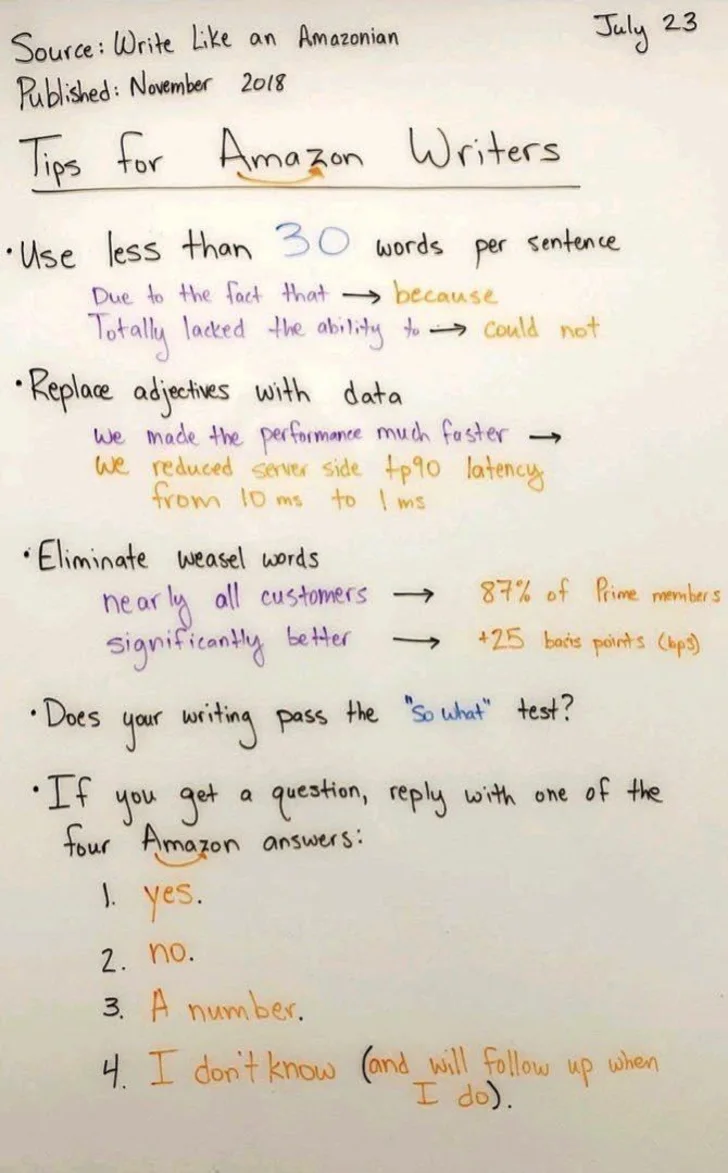Weasel words are vague phrases like “some experts suggest” or “it’s widely accepted,” which sound meaningful but are often empty and misleading. These words avoid giving concrete evidence, leaving too much room for interpretation.
Amazon recognized this issue early and built a culture around avoiding weasel words to promote precise, actionable communication. This approach is ingrained in their teams’ communication, helping to eliminate ambiguity and drive clearer decision-making.

What Are Weasel Words?
Weasel words are vague terms that fail to offer specific information. They may sound good, but without details, they don’t provide any real insight. For example:
- “Significant improvement” – Improved by how much? According to what metric?
- “Low latency” – How low? Compared to what?
- “Some people say” – Who are these people, and why should their opinion matter?
Without concrete data, these phrases are meaningless. Amazon’s emphasis on eliminating weasel words forces teams to focus on clear, data-driven communication that can be measured and verified.
When teams use precise language backed by data, it leads to more informed discussions and quicker resolutions. Ambiguity slows down progress, causing misunderstandings or unnecessary debates.
For example, instead of saying, “Customer complaints have increased significantly,” a more precise version would be, “Customer complaints increased by 25% in the past month, particularly regarding shipping delays.” This shifts the conversation from guessing what “significant” means to discussing how to reduce those complaints.